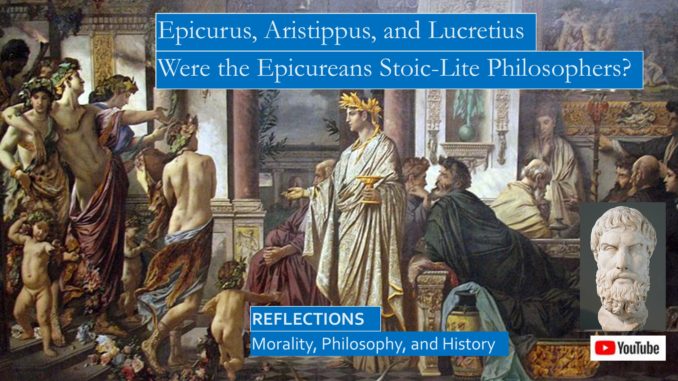
The Epicureans, named after the Greek philosopher Epicurus, believe that we should seek to minimize pleasure and minimize pain, that the pursuit of pleasure is the greatest good. Does this mean that Epicureans were hedonists?
The answer depends on, What defines hedonism? Do we accept the Playboy definition where pleasure is the only moral, that we should do whatever our sexual passions drive us to do, flagrantly ignoring the harm done to our loved ones, our acquaintances, and our neighbors? Should sex, drugs, and rock and roll rule our life?
We need to be careful how we answer these questions. If we live our life for the weekend, if we look forward to dancing on Friday nights and restaurants and the latest movie and the weekend football games are what we live for, we may be Epicureans. If so, we need to learn how to be responsible Epicureans (and probably responsible drinkers also).
Please view our subsequent blog, which includes more history of Epicureanism, published 11/10/2021:
http://www.seekingvirtueandwisdom.com/epicurus-aristippus-and-lucretius-history-of-epicurean-philosophy/
Please view our YouTube video, published 11/10/2021: https://youtu.be/49Qv3Be86Jw
YouTube script, with more book links: https://www.slideshare.net/BruceStrom1/epicurus-aristippus-and-lucretius-were-the-epicureans-stoiclite-philosophers
Dr. Arthur Holmes, a philosophy professor at Wheaton College, says plainly that Epicurean Philosophy is hedonistic, which means that hedonism is defined by what the Epicureans believe. Holmes states that the earliest and most extreme Epicurean is Aristippus of Cyrene, who was a former student of Socrates who was condemned in Plato’s dialogues as a Sophist who charged fees for his wisdom. After his death, his philosophical school was absorbed into the more moderate Epicurean school. Holmes summarizes the philosophy of Epicurus thus:
The Greeks say, Know thyself.
The Epicureans interpret this as: Know the pleasures, to seek our pleasures.
But be moderate, be reasonable, be master of your passions.[1]
Does this make Epicurus as Stoic-Lite Philosopher?
NOTE: The footnote has the YouTube link for the lecture series below.
Nothing survives of any works by Aristippus, most of what we know of his teachings are from the ancient Greek Diogenes and his “Lives of the Eminent Philosophers.” What Diogenes mostly tells are stories from his life, and the stories of Aristippus definitely suggest a playboy mentality. One story is he was offered by a king his choice of three courtesans, and he chose all three for the night! The king asked him his reason, and Aristippus replied that Paris brought on the fall of Troy by choosing one naked goddess rather than all three. Another story has his courtesan bringing him the news that she was pregnant, expecting support, and he responded coolly that she could no more tell that he was the father than she could tell the exact origin of sandspurs that stuck to her clothes after she walked through a field.[2]
Epicurus was more moderate. Epicurus would have been horrified by the sex, drugs, and rock and roll culture of the sixties. Baird and Kaufmann describe his beliefs thus: “Epicurus declares that pleasure is the highest good, though some pleasures are unnatural and unnecessary. In contrast to modern understanding of the word epicurean, Epicurus opposed exotic meals and profuse consumption. Such indulgences never bring permanent pleasure and frequently lead to its opposite: pain. Instead Epicurus advocates enjoying only the ‘natural’ pleasures – those most likely to lead to contentment and repose.”[3]
Were Epicureanism and Stoicism competing schools of philosophy? They were competing but not necessarily opposing schools of philosophy, both were inheritors of the Greek world view testified by the inscriptions carved at the ancient Oracle at Delphi, Know Thyself and Nothing in Excess. They differed in emphasis. You could say that while the Stoics believe that your goal should be to live a godly life, and if you truly live a godly life, sometimes you will be happy, and sometimes you will not, while the Epicureans believe your goal should be to live a happy and pleasurable life, but not a selfish and ungodly life, for selfishness and ungodliness leads to misery, not true pleasure.
Seneca, an important Roman Stoic philosopher, quotes Epicurus often in his Moral Discourses, so the two philosophies were not necessarily antagonistic. Some scholars note that Epicureanism was more popular among the wealthy, like Seneca, and ignored by the more impoverished, like Epictetus and Rufus, since the pleasures of life do require a level of prosperity; nevertheless, we in the prosperous modern world basically live an Epicurean lifestyle, living for the weekend, enjoying evenings at restaurants and the moves, and vacations in the summers in nice hotels, drinking moderately but not excessively. While we can learn from the Epicurean philosophers, we must be mindful that Christianity is more compatible with Stoic philosophy than Epicureanism.
Perhaps moderate Epicureanism can be seen as Stoicism Light. Perhaps we can deduce some worthy lessons from the works of Epicurus, and Lucretius.
Epicurus wrote volumes of philosophical works, but only a few letters and fragments survive, barely enough to fill thirty pages in anthologies. So little survives of his works that it is difficult to say exactly what he believed, but we can surmise since the monks who kept the Greek learning alive in the early Middle Ages cared little to preserve the works of Epicurus, that that which was lost may have been more hedonistic than the few works that were preserved.
Perhaps some of the lost works of Epicurus contained moderate moral teachings, we just cannot say. We do know that Diogenes had a much better opinion of Epicurus than Aristippus, he writes: “For Epicurus has many witnesses to his unsurpassed goodwill to all men – his native land, which honored him with bronze statues; his friends, so many in number that they could hardly be counted by whole cities, and indeed all who knew him, held fast as they were by the siren-charms of his doctrine, . . . his gratitude to his parents, his generosity to his brothers, his gentleness to his servants, . . . and his benevolence to all mankind.”[4]
We cannot say what moral writings of Epicurus were lost to history, but we do know that the Roman Epicurean philosopher Lucretius several centuries latest had some emphatic moral teachings, as quoted from his main surviving work:
Greed and blind lust for fame
Which compel men to transgress
The bounds of law, and often times make them
Allies and ministers of crime, strive night and day,
With toil and sweat to gain the heights of power,
These wounds of life in no small part are fed
By fear of death. For it is the common view
That shameful scorn and bitter poverty
Are far removed from a sweet and stable life,
And, as it were, are simply lingering
Before the gates of death.
By civil strife they make wealth for themselves
And heap up riches, murder upon murder,
Piling in greed. Envy consumes them.[5]
Lucretius is describing attitudes we see today in our wealth worshiping culture. In our modern culture, businessmen prize most those who can sell, those who can earn six and seven digits in commissions in a year, and they often tolerate the deception needed to turn such large sales, for the wealthy who work hard are blessed, and the poor who are lazy are cursed. You may object that not all wealthy work hard, and that not all poor are lazy, but yet we do tend to credit the wealthy for their wealth and success and blame the poor for their failures and poverty.
Unlike Plato, Epicurus does not believe in the immortality of the soul (and neither do the Stoics), the Epicurean view of the soul, like Aristotle, views the soul as the life force of a creature, which means that the soul is scattered when our life ceases. If that were true, most people would first seek happiness, and not be as concerned about morality.[6] Like the Stoics, Epicurus believes the gods exist, but unlike the Stoics, Epicurus believes the gods have no concern with men.[7]
Like the Stoics, Epicurus enthusiastically praises the study of philosophy, “Let no young man delay the study of philosophy; for it is never too early nor too late to care for the well-being of the soul. The man who says the season of study has not yet arrived or has already past is like the man who says it is too early or too late for happiness.” Like St Paul, who exhorts us to pray without ceasing, so Epicurus bids us to “practice and study philosophy, the principles of the good life, without ceasing.”
What Epicurus says about the worship of the gods is also often true about how we worship God. “It is not the man who destroys the gods of popular belief who is impious, but he who describes the gods in the terms accepted by many. For the opinions of the many about the gods are not perceptions but false suppositions.” There are many who label themselves Christian but have many un-Christian beliefs they falsely believe are inspired. The false beliefs include imaging the Bible says that God helps those who help themselves, that charity should be avoided because it increases dependence, that we should not pity the poor because we judge them to be lazy, that God blesses the faithful with material prosperity, that God will shield the godly from unnecessary suffering. All these delusions are selfish delusions, all these delusions cause us to love our neighbors less, not more, and when we love our neighbors less that ourselves, then we cease to Love God with all of our heart and with all of our soul and with all of our mind and with all of our strength.
Epicurus continues, read closely, he is condemning the prosperity Gospel! “According to these popular suppositions, God sends great evils to the wicked, and great blessings to the righteous, for they, being always well disposed to their own virtues, approve those who are like themselves, regarding as foreign all that is different.” The translator’s footnote points out the Greek as well as the English in intentionally vague, does “they” refer to the gods, who approve of men like themselves, or does “they” refer to men, who approve of the gods?
Ambiguity, ambiguity, nothing swells the ranks of believers more than ambiguity, nothing swells the ranks of deluded unbelievers more than ambiguity. We pretend to confess our sins to Almighty God, we pretend that it is God who judges us, but are we not the judge of God, judging God for His blessing of our prosperity and His preventing of our suffering? Do not be too quick to answer how you should, but first remember the many people you know who are mad at God for loved ones who died too early, or for divorces or misfortunes suffered.
Epicurus believes that “pleasure is the greatest good,” which sounds like a belief Christians should condemn, but before we condemn the belief we must first ask ourselves, what does Epicurus mean when he says this, how does Epicurus define pleasure and happiness?
“The truest happiness does not come from enjoyment of physical pleasures but from a simple life, free from anxiety, with the normal needs satisfied.” “Pleasure means the state where our body is free from pain and our mind is free from anxiety. Neither continual drinking and dancing, nor sexual love, nor a luxurious table brings us the pleasant life,” but sober reason that examines the motive for every choice and rejection. “The truly wise man can be happy with a little,” simple and plain living is healthy living.
Epicurus warns, “pleasure is the greatest good, but some pleasures bring pain,” and “not every pleasure should be chosen.” This thought is not fully developed in the fragments remaining of Epicurus’ works. One interpretation is he is referring to false pleasures, selfish pleasures, pleasures that harm our neighbors or our loved ones, pleasures that rule our lives, addictions that ruin our lives.
Epicurus writes that “the chief good is prudence, prudence is more precious than philosophy itself. All other virtues spring from prudence. You cannot live pleasantly without also living prudently, nobly, and justly, nor to live prudently, nobly, and justly without living pleasantly.”[8]
Alas, Epicurus is not Kant. Kant teaches that we must live by the moral imperative, regardless of the consequences, that there is a higher good that we must adhere to. In contrast, the writings of Epicurus suggest that our actions are unjust only when we are caught and punished. In his Principle Doctrines Epicurus proposes that:
XXXI. “Natural justice is a compact resulting from expediency to prevent men from injuring each other.”
XXXIII. “Justice in the abstract does not exist, it is merely a compact between men” that they will not harm each other.
XXXIV. “Injustice is not evil it itself, but only in the fear and apprehension that” you will not escape punishment.[9]
Unfortunately, Epicurus does not resolve the many logical questions that spring from these propositions, such as:
Is injustice evil only when it is punished?
Does this mean injustice is not evil when it is merely noticed but not punished?
Or is injustice evil only if the unjust admits their injustice?
For there to be justice, do all parties need to agree on what justice is?
If justice is expedient, does that mean that justice is changeable?
Who determine what justice is, the weak or the strong?
Maybe Stoics build their house on the rocks of solid morals that the waves helplessly pound, while the Epicureans prefer houses sitting on shifting sand.
[1] Arthur F. Holmes, Lecture 15, Epicurean Philosophy, A History of Philosophy, Wheaton College, https://www.youtube.com/watch?v=sOnU7QS1dHM
[2] Laërtius, Diogenes (1925). “Socrates, with predecessors and followers: Aristippus“. Lives of the Eminent Philosophers. 1:2. Translated by Hicks, Robert Drew (Two volume ed.). Loeb Classical Library, and also, https://en.wikisource.org/wiki/Lives_of_the_Eminent_Philosophers/Book_II#Aristippus
[3] Forrest Baird and Walter Kaufmann, “Ancient Philosophy,” Fifth Edition, Philosophic Classics, Volume 1 (New Jersey: Pearson Prentice Hall, 1994-2008), 459.
[4] Laërtius, Diogenes (1925), Epicurus, and also Loeb Classical Library, and https://en.wikisource.org/wiki/Lives_of_the_Eminent_Philosophers/Book_X,
[5] Lucretius, “On the Nature of the Universe,” in Ancient Philosophy, Philosophic Classics, Volume 1, 486.
[6] Epicurus, “Letter to Herodotus,” in Ancient Philosophy, Philosophic Classics, Volume 1, 468-469.
[7] Epicurus, “Letter to Menoeceus,” in Ancient Philosophy, Philosophic Classics, Volume 1, 474.
[8] Epicurus, “Letter to Menoeceus,” in Ancient Philosophy, Philosophic Classics, Volume 1, 474-477.
[9] Epicurus, “Principal Doctrines,” in Ancient Philosophy, Philosophic Classics, Volume 1, 480.

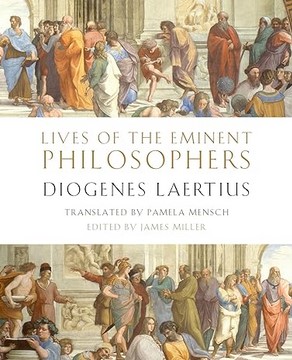
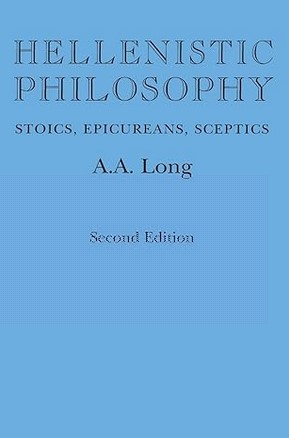
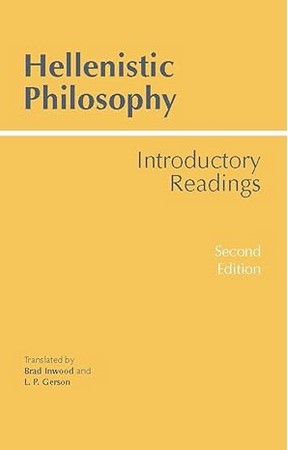
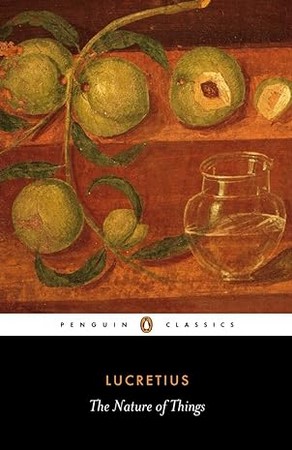



6 Trackbacks / Pingbacks